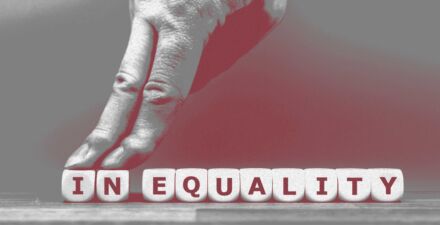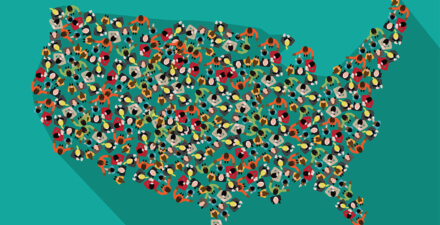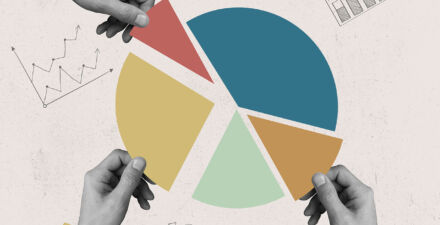Some of our most prominent economic statistics measure change in the total output of the U.S. economy. But this single number approach to economic progress rings hollow with many workers, who wonder why they aren’t seeing prosperity in their own lives. The goal of our GDP 2.0 project is to break down these monolithic numbers and understand how the economy is performing for Americans of different income levels, different regions of the country, and more.
Featured work
New research doesn’t overturn consensus on rising U.S. income inequality
January 10, 2024
January 10, 2024
GDP 2.0: Measuring who prospers when the U.S. economy grows
July 11, 2023
July 11, 2023
Executive actions to modernize federal data collection and improve measurements of U.S. economic inequality
March 22, 2023
March 22, 2023
New digital tools demonstrate the promise of measuring well-being in the United States
December 21, 2022
December 21, 2022
Structural racism and the coronavirus recession highlight why more and better U.S. data need to be widely disaggregated by race and ethnicity
September 24, 2020
September 24, 2020
Explore Content in GDP 2.0212
New Circular A-4 offers opportunities for researchers interested in disaggregating the costs and benefits of U.S. regulations
February 1, 2024
February 1, 2024
New research doesn’t overturn consensus on rising U.S. income inequality
January 10, 2024
January 10, 2024
Request for proposals: Research grants for early career scholars
November 30, 2023
November 30, 2023
GDP 2.0: Measuring who prospers when the U.S. economy grows
July 11, 2023
July 11, 2023
Proposed update to federal cost-benefit analysis guidelines correctly focuses on accounting for inequality in regulations
May 23, 2023
May 23, 2023
The rise of industrial policy means data synchronization is more critical than ever
May 12, 2023
May 12, 2023
Getting on the GRID: Accessing and using statistics from the Global Repository of Income Dynamics
April 19, 2023 2:00PM - 3:00PM
Maybe some Earth Day soon, we’ll know what nature is worth
April 24, 2023
April 24, 2023
Executive actions to modernize federal data collection and improve measurements of U.S. economic inequality
March 22, 2023
March 22, 2023
Data infrastructure and tribal sovereignty can help break down barriers for Native Americans to build wealth
March 2, 2023
March 2, 2023
U.S. income and wealth inequality are no longer increasing, but a return to the equitable levels of the mid-20th century isn’t likely anytime soon
January 17, 2023
January 17, 2023
Explore the Equitable Growth network of experts around the country and get answers to today's most pressing questions!















